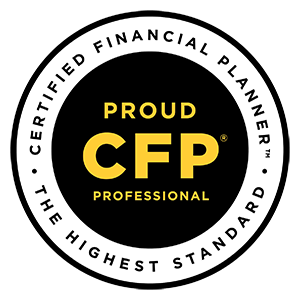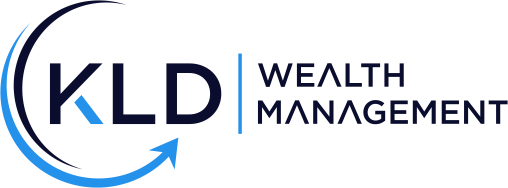Get in touch
Call or Text:
937-404-5180
Email:
dwiedmeyer@kldwealth.com
Ever tried to sell something you own, only to be completely baffled when someone offers way less than you thought it was worth? Whether it's that used car you've had for years, a family heirloom, or even a stock you’ve held onto for too long, you’re likely experiencing the endowment effect. It’s that sneaky psychological quirk where we tend to overvalue what we own—simply because it’s ours.
In the world of personal finance, the endowment effect can mess with your decision-making in big ways. It can lead you to hold onto underperforming investments, cling to property that no longer fits your financial goals, or keep assets that are draining your finances—all because of the emotional value you've assigned to them.
If you're aiming for financial success, it’s crucial to understand this bias and learn how to overcome it. Today, we’ll explore what the endowment effect is, how it shows up in personal finance, and most importantly, how you can use personal financial planning to avoid letting this bias derail your financial goals.
What is the Endowment Effect?
The endowment effect is a cognitive bias that causes people to overvalue things simply because they own them. It’s the reason why you might think your old couch is worth $500, but potential buyers are offering you $200. That couch has been through game nights, movie marathons, and maybe even a few spills—so naturally, it's more valuable to you than it is to someone who sees it as just another piece of furniture.
But here’s the kicker: this emotional attachment often has nothing to do with the actual market value of the item. The same goes for assets in your financial life, whether it’s your home, stocks, or even a small business you’ve nurtured from the ground up. The emotional weight you’ve assigned can cloud your judgment, leading you to hold onto things that may not make financial sense anymore.
The Endowment Effect in Personal Finance
Let’s take a closer look at how this bias can show up in your financial life and quietly undermine your long-term goals.
1. Home Ownership
We get it—your home is more than just four walls and a roof. It's the place where memories are made, where you’ve maybe put sweat equity into renovations, and where life has happened. So naturally, you might assume it’s worth more than the market suggests. Many homeowners fall into the trap of overpricing their property based on the emotional connection they feel to it, rather than what the real estate market will actually bear.
2. Investment Portfolios
Ever held onto a stock because, “I just know it’s going to rebound!” even though every indicator says it’s time to sell? That’s the endowment effect at work in your investment portfolio. Once you own an investment, you might irrationally assign it more value than it deserves, refusing to sell—even when doing so would allow you to reinvest in something better.
3. Heirlooms and Estate Planning
Family heirlooms carry not just monetary value but emotional significance, and that can make things tricky when it comes to estate planning. People often overvalue these items, complicating decisions like how to divide assets among heirs or whether to sell the items to benefit the estate.
4. Business Ventures
If you’re a business owner, the endowment effect can be particularly challenging. You’ve poured your heart, soul, and countless hours into your business, so when it comes time to sell, you may expect a higher price than potential buyers are willing to pay. This emotional attachment can lead to poor decisions—like holding onto a failing venture longer than you should or refusing a reasonable offer because it feels too low.
Why We Fall for the Endowment Effect
The endowment effect is rooted in several psychological tendencies:
- Emotional Attachment: We tie memories and personal meaning to our belongings, which can distort our sense of their financial value.
- Loss Aversion : The pain of losing something we own feels more intense than the joy of gaining something new. This makes it hard to let go of assets—even when holding onto them isn’t in our best financial interest.
- Status Quo Bias: People tend to stick with what they have because change feels uncomfortable. We prefer the familiar, even if the familiar isn’t serving us anymore.
How Personal Financial Planning Helps Avoid the Endowment Effect
The good news is that personal financial planning can help you break free from this bias and make more rational, objective decisions. Here’s how:
1. Objective Valuations
One of the best ways to combat the endowment effect is by getting objective, third-party valuations on your assets. For example, a real estate appraisal can help you understand what your home is actually worth in the market, rather than what your emotions say it’s worth. The same goes for investments—working with a financial advisor to get an objective look at your portfolio can reveal which assets are truly valuable and which are dragging you down.
2. Diversified Investment Strategies
Diversification is key to managing risk, but it’s also helpful for overcoming the endowment effect. When your portfolio is diversified, you’re less likely to emotionally attach to any single investment, making it easier to sell when necessary. A well-balanced portfolio helps you focus on overall financial health rather than clinging to underperforming assets out of sentimentality.
3. Regular Financial Reviews
Frequent financial check-ins can help you reassess your attachments and make adjustments based on logic rather than emotion. Reviewing your financial plan regularly—whether it’s your investments, estate plan, or property—can help you see things with fresh eyes. You’ll be more inclined to let go of assets that no longer align with your long-term goals.
4. Setting Sell Rules for Investments
Predetermined selling criteria can save you from emotional decision-making. For example, you can set rules that say, “If this stock drops below X or performs below Y for Z period of time, I will sell.” These rules take the emotion out of the equation and ensure that you make decisions based on data, not feelings.
Mitigating the Impact of Cognitive Biases
Avoiding the endowment effect is all about recognizing it and putting systems in place to help mitigate its influence:
- Awareness and Education : Just knowing that the endowment effect exists can help you spot it when it starts to influence your decisions.
- Consulting a Financial Planner : An objective third party—like a fee-only financial planner —can offer the outside perspective you need to see past emotional attachments. A planner can guide you toward rational financial decisions that align with your long-term goals.
- Data-Driven Decisions : Whenever possible, base your financial choices on solid data—market performance, projected returns, and objective appraisals—rather than how you “feel” about an asset.
The endowment effect is a powerful bias that can hold you back from making the best financial decisions. But with the right financial planning tools and objective advice, you can take the emotion out of the equation and make decisions that help you reach your long-term goals. If you’re ready to take control of your finances and stop letting emotional attachments dictate your decisions, schedule a consultation with us today. Together, we can build a plan that’s grounded in logic, not bias, and designed to secure your financial future.



Phone
937-404-5180
706 Deerfield Rd.
Lebanon, OH 45036
Get financial wellness tips, directly to your inbox.
Contact Us
We will get back to you as soon as possible.
Please try again later.
All Rights Reserved | KLD Wealth | Privacy Policy | Form ADV
Advisory services offered through KLD Wealth Management, LLC, an investment adviser registered with the state(s) of Ohio. Advisory services are only offered to clients or prospective clients where KLD Wealth Management, LLC and its representatives are properly registered or exempt from registration.
The information on this site is not intended as tax, accounting or legal advice, nor is it an offer or solicitation to buy or sell, or as an endorsement of any company, security, fund, or other offering. Information provided should not be solely relied upon for decision making. Please consult your legal, tax, or accounting professional regarding your specific situation. Investments involve risk and have the potential for complete loss. It should not be assumed that any recommendations made will necessarily be profitable.
The information on this site is provided “AS IS” and without warranties either express or implied and the information may not be free from error. Your use of the information provided is at your sole risk.
